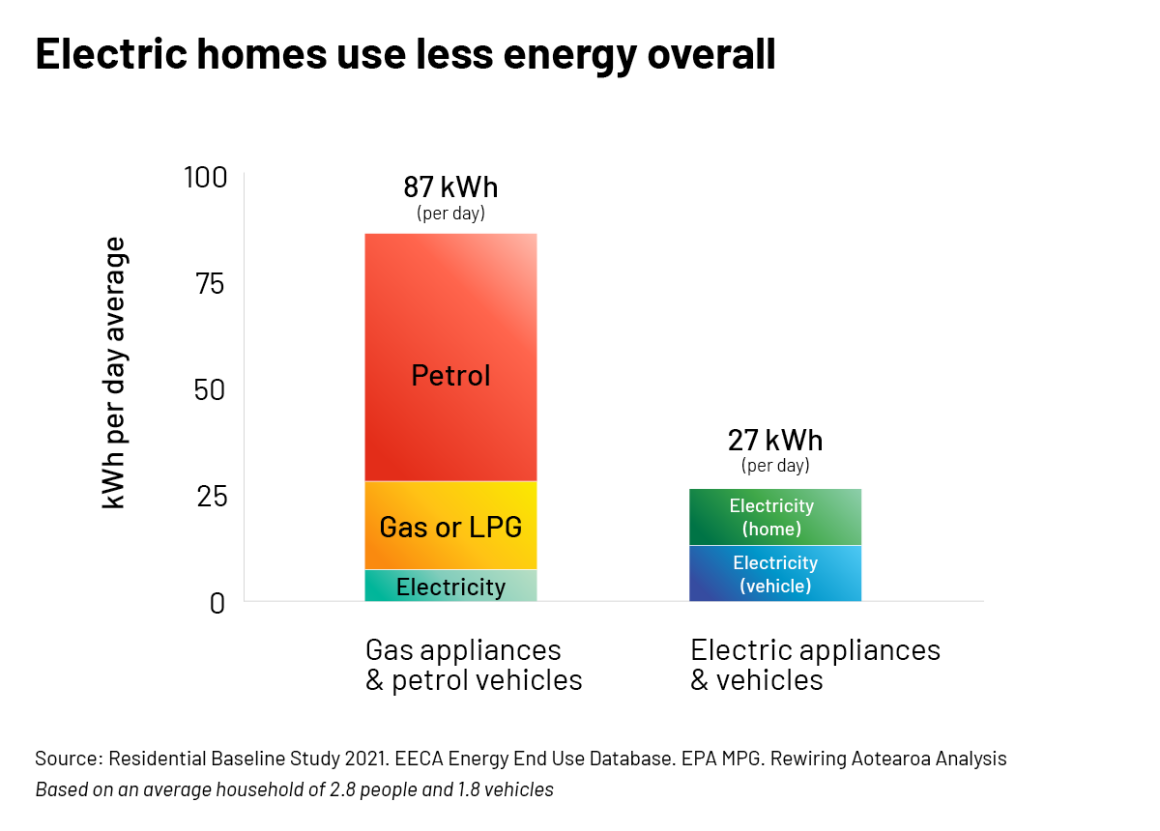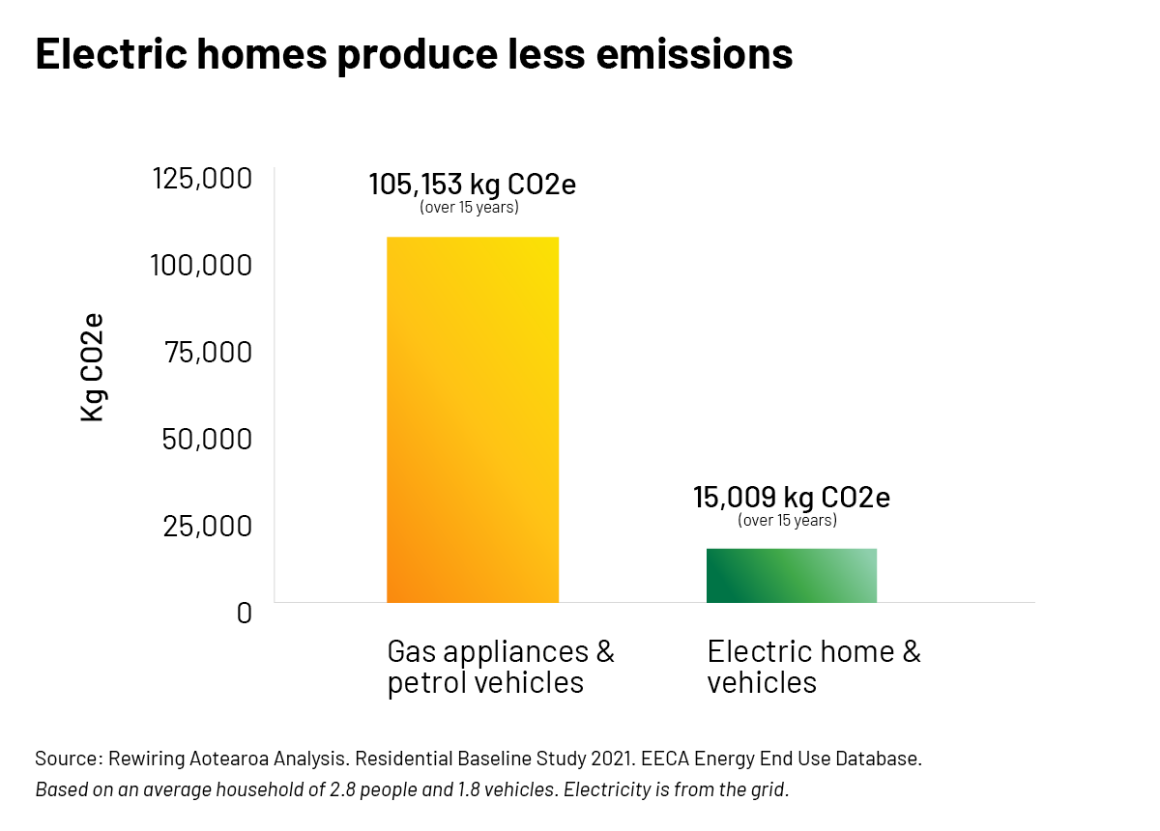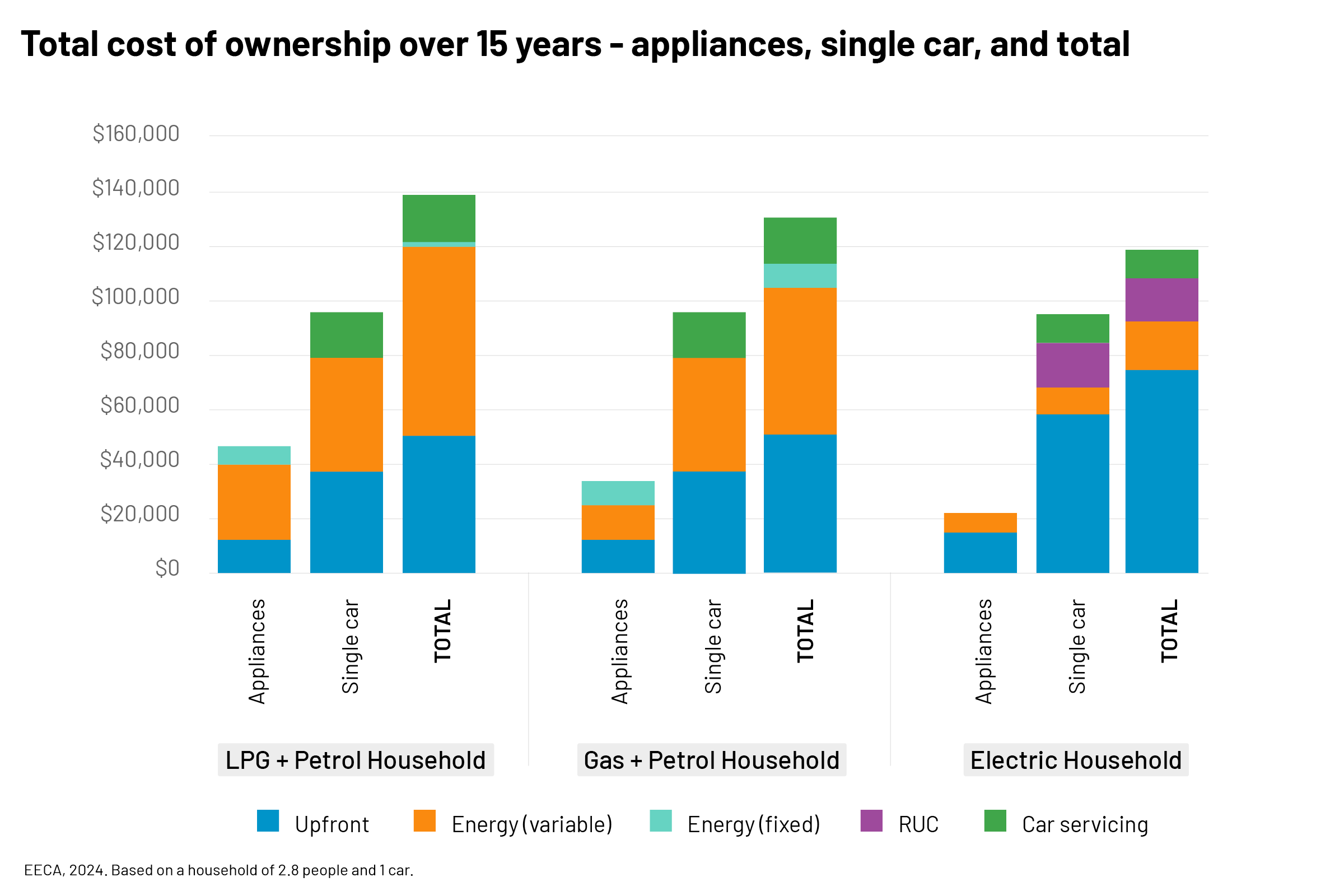While we all use electricity, many New Zealanders still rely partially on fossil fuels such as piped gas and LPG to power our homes, and petrol or diesel in our cars. But homeowners now have more choice than ever when it comes to household appliances, and every new purchase is an opportunity to make a positive change to cleaner energy.
When your appliances break down, or you're amid renovations, it's the perfect time to consider upgrading to better, more sustainable options. This is where electric alternatives shine.
We’ve done the math on key household energy uses such as heating, water heating, cooking and driving. The numbers show that on average the most efficient electric options make sense financially – both in terms of yearly running costs and overall lifetime costs.
Discover how your household might stand to benefit from going electric.
It pays to go electric
By choosing all-electric home appliances, New Zealanders could save around $1,000+ per year in energy costs. When upfront costs are included, you could save $10,000-$20,000 over a 15-year appliance lifetime.
An all-electric household produces 85% less greenhouse gas emissions than a mixed-fuel household, with the largest impact coming from electric vehicles.
Rooftop solar maximises both cost and emissions savings, and can pay itself off in around 7-8 years.
-
Lower your monthly bills
Electric appliances and cars are generally cheaper to run than fossil-fuelled equivalents. After adopting the full mix of electric household vehicles, appliances and technology it’s likely you will halve the energy that you use today.
-
Shrink your carbon footprint
Our electricity grid is mostly powered by clean, renewable energy sources. This means that electric tech produces far less emissions than things that use gas or petrol.
-
More choice now and in the future
As your appliances and vehicles age and need to be replaced, choosing efficient electric replacements will give you more control over your energy use, and ensure your home is fit for the future.
Over the last three years I have upgraded to a hot water heat pump, installed solar and bought a second hand EV. I'm now paying around half of what I was previously on my energy bills.
How we use energy in our homes
Fuelling vehicles is typically the largest energy use for New Zealand households, followed by space heating and water heating.
Electric appliances and vehicles are much more efficient than their fossil-fuelled equivalents, using less energy overall to do the same job.
They also produce less greenhouse gas emissions because our national electricity grid is around 80-85% supplied by clean energy sources like hydro and wind.


How much you can save*
Compared to a home that uses piped gas for heating, hot water, and cooking, a fully electric home can save you...
- $920
per year (energy costs)
- $10,900
over 15 years (upfront and energy costs)
Compared to a home that uses LPG for heating, hot water, and cooking, a fully electric home can save you...
- $1,480
per year (energy costs)
- $19,500
over 15 years (upfront and energy costs)
Where you can make the most impact
Read next
-
Smart homes – the future of home energy management
New Zealand homes are set to get smarter, with energy-saving technology that will keep power bills down. Find out how you can get your home ready.
- Efficient appliances
-
The electricity grid and climate change
Learn about our highly renewable electricity grid and why the time of day we use electricity makes a difference.
-
Build in a low carbon way
Lock in low emissions living when you buy, design, or renovate your home.

